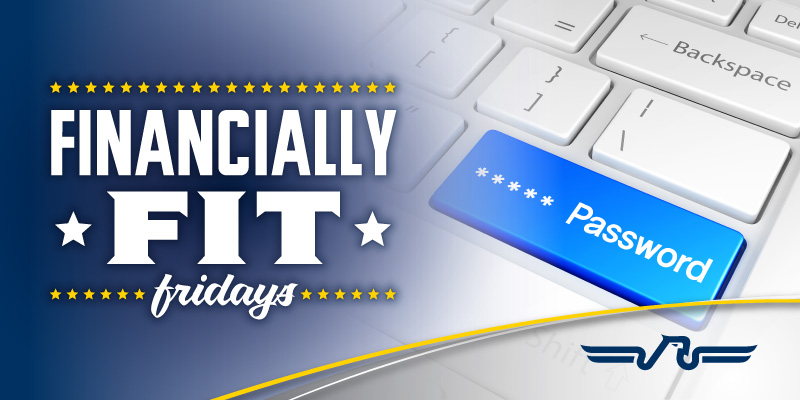Fraud Prevention: Creating Strong Passwords
If your password is 123456, qwerty or, even worse, password, you should probably stop reading and change it now. Despite all the security hacks and data breaches in today’s world, many people still use easy-to-guess logins, putting their information & identities at risk. Creating strong passwords is your first line of defense against hackers, so here are some tips to get started.
- Make it easy (for you)—Passwords you can’t remember are useless. Choose keywords or phrases you can easily memorize. But don’t make it so simple that someone else could quickly figure it out.
- Make it unique—Don’t use the same login on various accounts, because if someone gets access to one, they’ll have them all. Create a unique password for every site to ensure better security.
- Change cases—Many logins are case-sensitive, so using a mix of uppercase and lowercase letters will add an extra layer of protection. You don’t even have to follow the capitalization rules you learned in school—CapiTaLIze whateVER yOU WAnT, WHerEveR You wANt.
- Add numbers—Include numbers that mean something to you. Don’t just include a 1 at the end of your password, put a series at the beginning (8675309Jenny), at the end (Jenny8675309) or interspersed throughout a word (J867e53nn09y). You can even replace certain letters with numbers, such as 4m3r1c4 F1r57 Cr3d17 Un10n.
- Try special characters—Even adding a question mark at the end of your password can make a difference. You can add the pound sign at the beginning to make it hashtag (#PurpleToupee?) or put a word in quotes (Nowmadewith”real”cheese!). Be creative.
- Consider passphrases—Instead of just one or two words, try a sentence. Create a long phrase that means something to you, such as nevergonnagiveyouUP!nevergonnaletyouDOWN! or WhyDoesMyEmployerMakesMeChangeThisEvery6Months?
- Swap passwords often—Make a habit of changing your passwords periodically. This rotation will ensure that even if someone does discover your login, they won’t have it for long.
Following the advice above may not protect you from every cyberattack, but it will help strengthen your online security.

